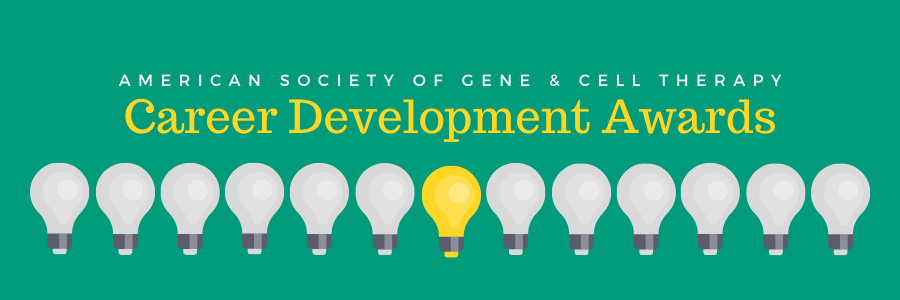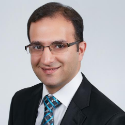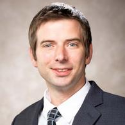Catching Up with 2019 CDA Winners Sharif Tabebordbar and Chris Nelson
Ru Xiao, M.D., and Karen Bulaklak, Ph.D. - July 29, 2020
We checked in with 2019 Career Development Award winners Mohammadsharif Tabebordbar, Ph.D., a postdoctoral fellow in the Sabeti lab at Harvard University and the Broad Institute, and Chris Nelson, Ph.D., Assistant Professor of Biomedical Engineering at the University of Arkansas, to find out what they've been working on since winning the award.
The deadline to apply for a 2020 Career Development Award is this Saturday, August 1!

Mohammadsharif Tabebordbar
 How has the award has helped your career development?
How has the award has helped your career development?
The Career Development Award has provided me with the resources to develop technologies that I plan to use as the foundation of the research program in my future academic lab. My vision for the focus of my independent lab is to tackle the most challenging issues that limit development of potent AAV-based therapeutics, including tissue-targeted gene delivery after systemic injection, and the support from the AGSCT Career Development Award has enabled me to establish technologies that I’m using to address these challenges. I’m also really excited about the opportunity to present my research to the community at the (hopefully in-person) ASGCT conference next year.
How has the pandemic affected your research and what are your plans for the next steps?
The research shutdown during the last few months slowed down the progress that I have been making, specifically with the in vivo studies, but the experiments are finally starting to get up to speed again. At the same time, while working from home, I was able to spend more time thinking about the future direction of my research and new ways of addressing the biological questions that I’m interested in.
There is currently some uncertainty about availability of open faculty positions in different academic institutions due to hiring freeze policies. This has caused confusion for applicants going on the job market this year. It would be very helpful if available academic faculty jobs in the fields of gene and cell therapy are also publicized through the ASGCT Career Center.
What would you recommend to researchers who want to apply for the Career Development Award?
My recommendation is to select the most challenging biological questions in the field and to propose out-of-the-box but feasible strategies to address them. Providing preliminary data always helps to show feasibility. Ideally, the methods and technologies that need to be developed as part of the proposed project can be used as a platform to address a variety of similar issues in the future.
Chris Nelson
 When and why did you decide to apply for the Career Development Award?
When and why did you decide to apply for the Career Development Award?
I first learned about the award while I was wrapping up my postdoc work with Charles Gersbach at Duke University. I wanted to add a new direction to some of the work I had planned for my new lab and the award was the perfect opportunity. During that time, I moved to the University of Arkansas and began work setting up my new laboratory. I applied for the award over that summer as my first grant submission from the new university.
How have you used the award over the past year?
The Career Development Award has allowed me to start an additional line of research, affording supplies, equipment, and student support for further dissecting the immune response to in vivo genome editing. As in vivo gene editing therapies enter the clinic, characterizing the immune system’s role in persistence of genome editing is important.
How has the award helped to advance your career?
The additional funds allowed me to establish a new pilot project in my lab. This type of expansion is important for establishing an independent research line and collecting preliminary data for larger federal grants. The additional funds also gave me the confidence to recruit an additional graduate student.
Looking back, are there any other society resources you would suggest to members who are in a similar position to you when you applied? Do you have any advice for trainees who are at a transitional point in their careers?
Attending the Annual Meeting was always a rewarding experience. The scientific content and conversations with leaders in gene therapy provided insight and inspiration to apply in the lab. I have also attended the gene editing workshop the past few years where some of the leaders and rising stars of genome editing speak about their work which is always inspiring. To trainees, I would advise attending a broad range of topics and have the confidence to ask questions and talk with leaders of the field.
Apply by August 1 for a Career Development Award
Dr. Xiao is a Principal Scientist at Akouos, Inc. and a member of the ASGCT Communications Committee. Dr. Bulaklak is a Senior Scientist, DMD Gene Editing, at Sarepta Therapeutics, and a member of the ASGCT Communications Committee.